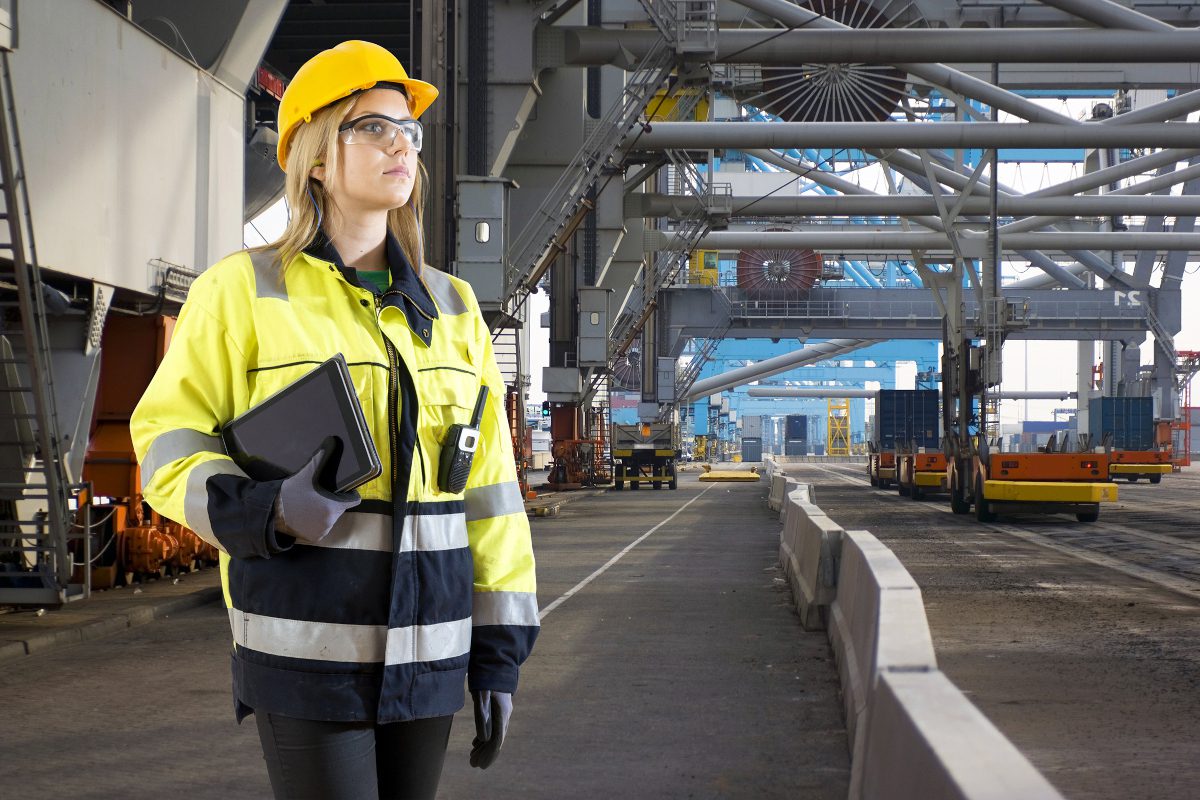
The Government will not deliver on its commitment to net zero by 2050, say the authors of a new research paper, without taking radical action to decarbonise the 12 most carbon-intensive industries, which together represent three-fifths of UK emissions and employ one in every five jobs. But if ministers take the right steps, they believe, the new demand for renewables and low carbon technologies could deliver up to 1.7 million new green jobs, half of which are likely to be located in the North, Midlands and Scotland.
The research paper is called Greening the Giants, and was completed at the behest of centre-right thinktank Onward’s cross-party “Getting to Zero” programme, co-chaired by Dame Caroline Spelman and Rt Hon Caroline Flint, and published on 26 March. The report analyses the challenge of greening the 12 most carbon-intensive industries – the so-called “carbon giants” – and recommends an ambitious 25-point-plan to get them to net zero over the next 30 years.
The analysis apparently finds that:
- Just 12 industries – which include aviation, agriculture, steel, manufacturing and construction – make up 62% of all UK carbon emissions. However decarbonising these industries will likely have a disruptive effect on the UK economy: these industries represent around 23% of UK output and 21% of current UK jobs.
- These “carbon giants” are disproportionately concentrated in the Midlands, the North of England and Scotland, with 51% of jobs in these industries are located in these regions. In the East Midlands, Scotland and Wales one seventh of annual GVA (16%) comes from these industries, meaning they are twice as exposed economically to decarbonisation risks as London (8%).
- These industries are likely to be politically harder to decarbonise too. On average, Scottish constituencies and Red Wall seats have 11% and 14% more jobs, respectively, in these high emitting sectors, compared to the UK average. 62% of carbon-intensive manufacturing jobs and 49% of steel jobs are in Conservative seats. Two thirds (66%) of jobs in aviation are in Labour held constituencies and 64% of oil and gas jobs are in SNP held seats.
The authors say the research underlines the political and economic challenges of delivering net zero, and the wholesale transformation of the UK’s industrial base it will require. This is mitigated by the considerable opportunity to generate new net zero jobs through low and zero carbon technologies. The report finds that:
- If the Government delivers on its commitment to the Net Zero Balanced Pathway in the Sixth Carbon Budget, which it committed to at the end of last year, its plans for decarbonisation will lead to up to 1.7 million additional green jobs by 2030. This comprises between 900,000 and 1.3 million jobs in low-carbon heating and energy efficiency, 367,000 jobs in electric vehicles and 36,000 jobs in low-carbon power.
- In terms of economic value, this explosion of decarbonisation activity is the equivalent to an increase in annual turnover for low carbon heating and efficiency from £19 billion in 2018 to £173 billion in 2030, or for electric vehicles and infrastructure from £4 billion to £158 billion. In total, it could generate over £330 billion in additional economic value by 2030.
- These jobs will be disproportionately located in places most exposed to the net zero transition and most associated with levelling up. 79% of industrial emissions abatement through hydrogen is likely to take place in the Midlands, North and Scotland, along with 77% from Carbon Capture and Storage and Bioenergy with Carbon Capture and Storage and 56% of electrification projects.
The report puts forward 25 recommendations for the Government to green the giants and ease the transition for these high-emitting industries, while maximising the domestic economic potential of the transition to boost jobs and growth, including:
- Establish a Net Zero Delivery Taskforce, modelled on the Vaccines Taskforce, with a specific remit and ministerial backing to initiate major government sponsored trials of high risk, high reward technologies still in the R&D phase.
- Introduce a new industrial Contracts for Difference scheme for green hydrogen and carbon capture, building on the success of CfDs in encouraging wind and solar renewables over the last decade.
- Introduce a Carbon Takeback Obligation (CTBO) requiring importers and extractors of fossil fuels to permanently store a percentage of carbon dioxide generated by the products they sell, rising from 1% in 2025 to 10% in 2035.
- Require a proportion of the materials in net zero technologies to be sourced from the UK supply chains, to reduce import emissions and boost UK industry, building on the offshore wind sector deal, which committed industry to using 60% UK steel by 2030.
- Publish regional carbon budgets to hold local and mayoral authorities accountable for their progress on emissions, while devolving responsibility for EV charging networks and retrofitting housing stock to local government.
- Use the UK’s chairmanship of the G7 in the summer to promote the idea of the Green7, using the world’s most powerful countries to drive decarbonisation alongside economic and national security.
Ted Christie-Miller, report co-author, said:
“The UK has successfully halved its emissions since 1990, but that means the low-hanging fruit have already been picked. The next phase will require the wholesale transformation of industries that are integral to our economy and vital for regional jobs. It is essential the Government helps these industries to make the transition, while helping new net zero industries to flourish. “
“We need to green the giants of industry through smart regulation and bold industrial strategy, using the energy around COP26 and the recovery from the pandemic to drive a net zero agenda over the next decade that is as ambitious as the pandemic response has been over the past year.”
Dame Caroline Spelman, Co-chair of the Getting to Zero commission:
“The need to move to net zero is a must. This detailed research by Onward shows what the impact will be on different industries and regions and why we need targeted mitigation. This ground breaking research will enable evidence based policy making by Govt both national and local and above all help avoid aggravating existing inequalities by seizing the opportunities that net zero affords”
Rt Hon Caroline Flint, Co-chair of the Getting to Zero commission:
“Is it possible to level up and get to net zero when carbon intensive industries are concentrated in the Midlands and the North of England and Scotland? Our report “Greening the Giants” provides some of the answers to how the dirty dozen can be reborn. And if policymakers make the right calls these transformed industries can be located in the very same areas that right now are set to lose out.”
Ruth Edwards MP, Member of the Getting to Zero steering group:
“The green transition is both a challenge and an opportunity for the UK. We are in the middle of a fundamental rethink of the way many of our oldest industries do business. This Onward report sets out how we can transition to a greener economy whilst staying true to our commitments to protect jobs and communities and to ‘level up’ opportunity throughout our country.”







